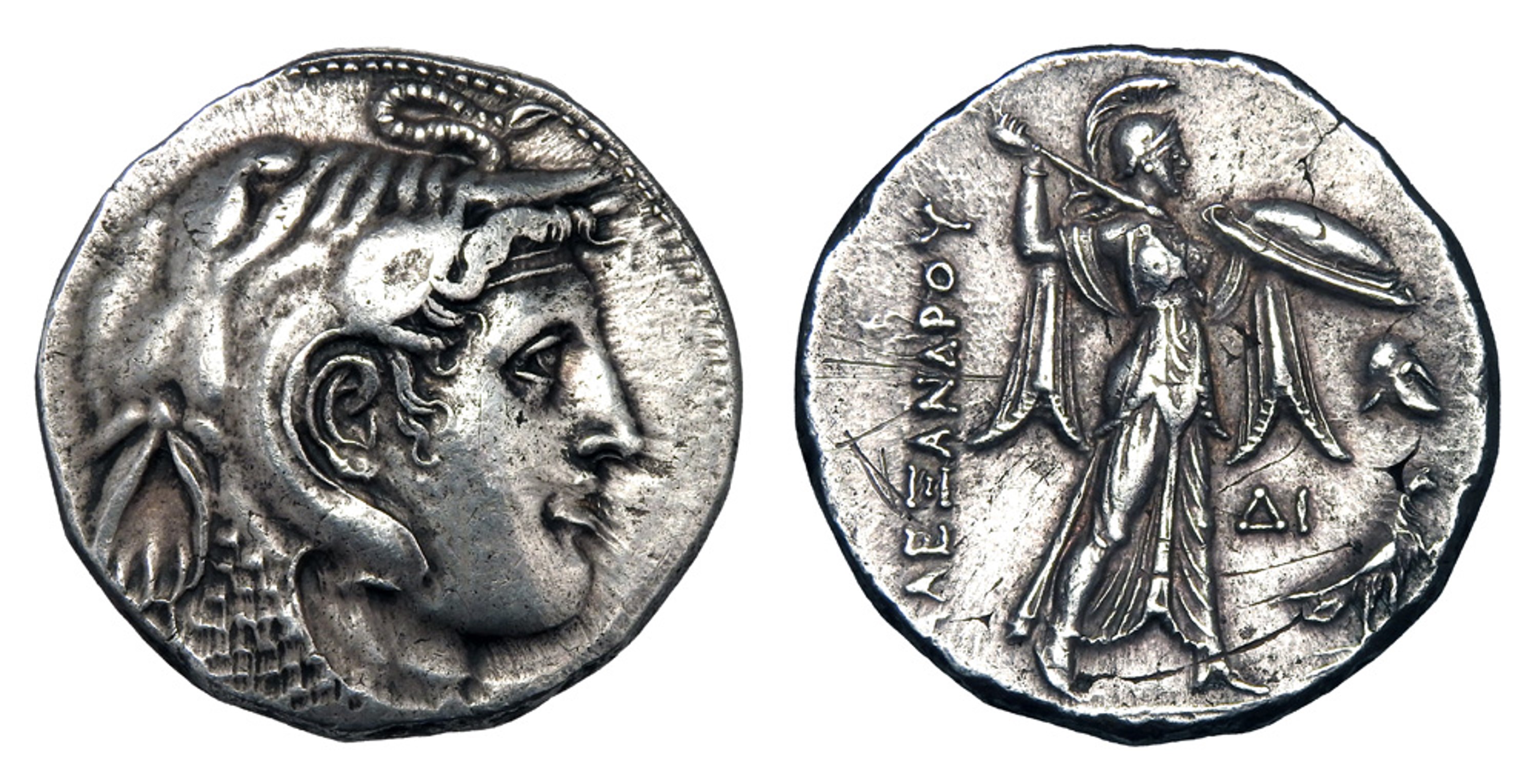306 BCE - 305 BCE | ΑΛΕΞΑΝΔΡΟΥ
Overstriking coin
Alexandria_Ptolemy_Pegasi_Numismatics, _sale_35_(Oct._2016), _lot_220.jpg
|
|
Sale(s)Sale(s) ᵖ:
|
Pegasi Numismatics, 35, Oct. 2016, 220
|
|
|
|
Description
| ObverseInscription or printing placed on the obverse.:
|
Head of the deified Alexander III to right, wearing a diadem with the horn of Zeus Ammon, an elephant skin headdress and aegis around his neck. Border of dots.
|
ReverseInscription or printing placed on the reverse.:
|
ΑΛΕΞΑΝΔΡΟΥ (Greek) Athena Alkidemos advancing to right, brandishing spear with her right hand and with a shield on her left arm. In the right field, Corinthian helmet, below ΔΙ and eagle on thunderbolt. Border of dots.
|
Mint and issuing power
Chronology
| FromIdentifies the initial date in a range assigned in a numismatic context. 306 BCE toIdentifies the final date in a range assigned in a numismatic context.. 305 BCE
|
Hellenistic 323-30 BC  periodTime period of the numismatic object. periodTime period of the numismatic object.
|
Physical description
MetalThe physical material (usually metal) from which an object is made.: Silver 
|
WeightWeight of the numismatic object (in grams). in grams: 15.6615.66 g <br />15,660 mg <br />
|
DenominationTerm indicating the value of a numismatic object. Examples: tetradrachm, chalkous, denarius.: tetradrachm 
|
|
|
|
StandardStandard.: Ptolemaic
|
References
Description
| ObverseInscription or printing placed on the obverse.:
|
|
ReverseInscription or printing placed on the reverse.:
|
|
Mint and issuing power
| MintIdentifies the place of manufacture or issue of a numismatic object. ᵖ:
|
|
Ancient regionAncient region. ᵖ
|
|
Modern countryModern country:
|
AuthorityIdentifies the authority in whose name (explicitly or implicitly) a numismatic object was issued. ᵖ:
|
|
Chronology
| FromIdentifies the initial date in a range assigned in a numismatic context. toIdentifies the final date in a range assigned in a numismatic context..
|
periodTime period of the numismatic object.
|
Physical description
References
References
- ^ Svoronos, Ioannes N. (1904-1908), Τὰ νομίσματα τοῦ κράτους τῶν Πτολεμαίων (Ta nomismata tou kratous tōn Ptolemaiōn - The coins of the Ptolemaic rulers), Athens, 4 v., 68 pl.
- ^ Zervos, Orestes H. (1967), "The early tetradrachms of Ptolemy I," American Numismatic Society. Museum Notes, 13, p. 1-16, pl. I-IV.
- ^ Lorber, Catharine C. (2018), Coins of the Ptolemaic empire : Part I. Ptolemy I through Ptolemy IV, 2 vol., New York.
